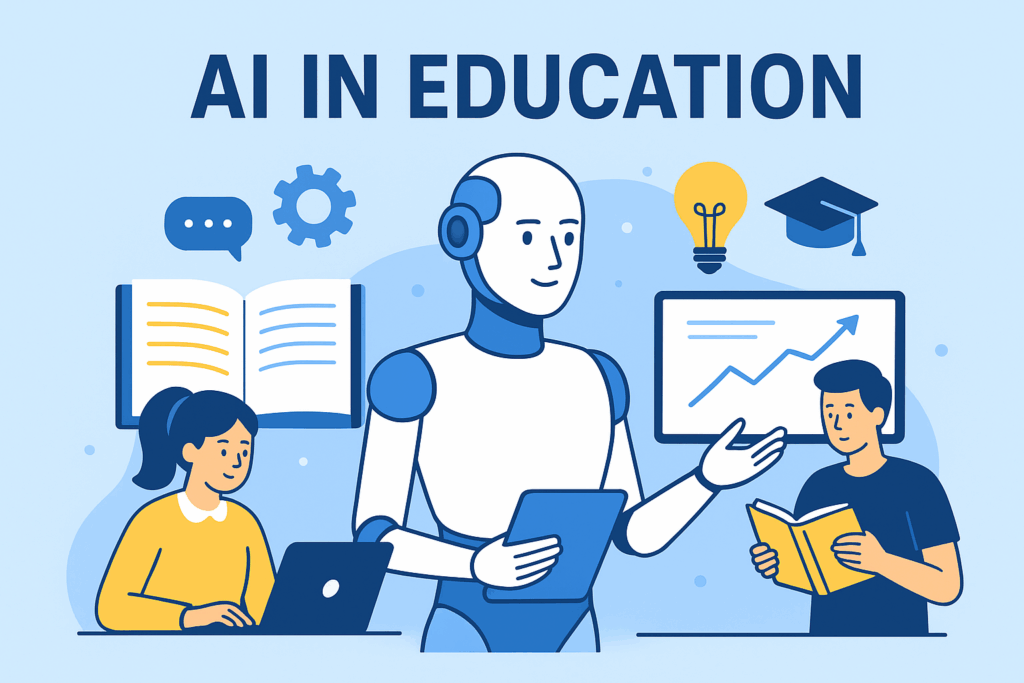
Introduction
Artificial Intelligence (AI) is no longer just a futuristic concept—it’s reshaping the way we learn, teach, and interact with knowledge. From personalized learning platforms to automated grading, AI is making education more efficient and accessible. In this article, we’ll explore how AI is transforming education in 2025 and beyond.
—
1. Personalized Learning
AI-powered platforms can analyze student performance and create tailored learning experiences. For example:
Recommending practice exercises based on weak areas.
Suggesting study materials suited to each student’s learning style.
This makes learning faster, engaging, and less frustrating.
—
2. Intelligent Tutoring Systems
AI tutors, like ChatGPT and other tools, provide instant support to students. They can:
Answer questions 24/7.
Explain difficult topics step-by-step.
Give real-life examples to make learning easier.
This is especially helpful in areas with limited access to teachers.
—
3. Automated Administrative Tasks
Teachers spend countless hours grading assignments and managing schedules. AI tools now automate tasks like:
Essay scoring.
Attendance tracking.
Lesson planning.
This frees up teachers’ time so they can focus more on actual teaching.
—
4. Virtual Classrooms and Language Learning
AI enhances e-learning through:
Speech recognition for practicing new languages.
AI-powered chatbots for instant answers during online classes.
VR + AI integration to simulate real-life experiences in science labs or history lessons.
—
5. Predictive Analytics for Student Success
AI systems analyze data to predict student outcomes. Schools can identify students at risk of dropping out and provide early intervention. This leads to better retention rates and improved results.
—
6. Breaking Barriers in Education
AI brings inclusive learning by:
Supporting visually impaired students with text-to-speech.
Translating materials into multiple languages.
Adjusting pacing for students with learning disabilities.
—
Conclusion
AI is not replacing teachers—it is empowering them. By automating repetitive tasks and creating smarter learning environments, AI is ensuring that education in 2025 is more personalized, inclusive, and effective.